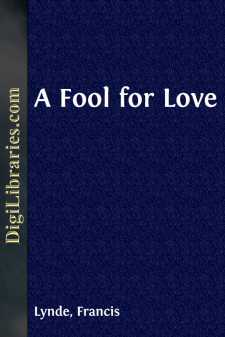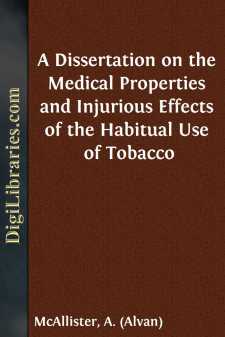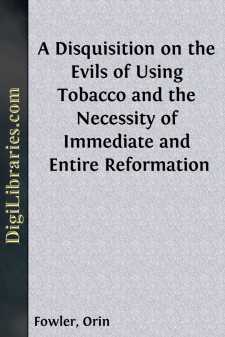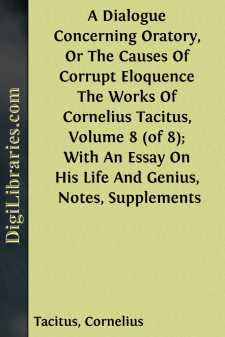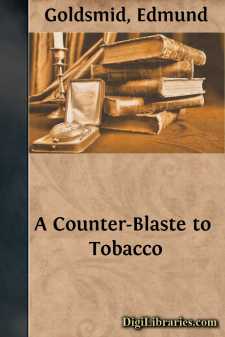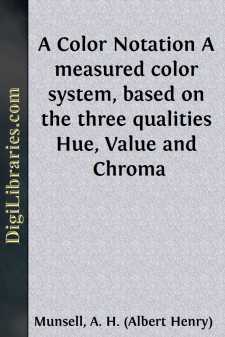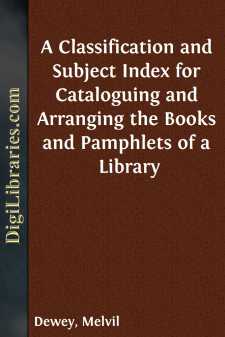Non-Classifiable
- Non-Classifiable 1768
Non-Classifiable Books
Sort by:
CHAPTER I—THE ELEMENTS OF DISCORD: NATIVE The story I have to tell is still going on as I write; the characters are alive and active; it is a piece of contemporary history in the most exact sense. And yet, for all its actuality and the part played in it by mails and telegraphs and iron war-ships, the ideas and the manners of the native actors date back before the Roman Empire. They are...
more...
by:
Francis Lynde
I. IN WHICH WE TAKE PASSAGE ON THE LIMITED It was a December morning,—the Missouri December of mild temperatures and saturated skies,—and the Chicago and Alton's fast train, dripping from the rush through the wet night, had steamed briskly to its terminal track in the Union Station at Kansas City. Two men, one smoking a short pipe and the other snapping the ash from a scented cigarette, stood...
more...
by:
George Berkeley
1. My design is to show the manner wherein we perceive by sight the distance, magnitude, and situation of OBJECTS. Also to consider the difference there is betwixt the IDEAS of sight and touch, and whether there be any IDEA common to both senses. 2. It is, I think, agreed by all that DISTANCE, of itself and immediately, cannot be seen. For DISTANCE being a Line directed end-wise to the eye, it projects...
more...
INTRODUCTION. The first edition of Dr. McAllister's Essay, was printed without any Appendix. Having myself been in the habit of using tobacco very moderately (usually but once in a day) from early life, I read the Essay as first printed with great interest. It appeared to me a sober, judicious, rational appeal to the understanding and judgment of the public, with respect to the subject of which it...
more...
by:
Orin Fowler
Among the evils which a vitiated appetite has fastened upon mankind, those that arise from the use of Tobacco hold a prominent place, and call loudly for reform. We pity the poor Chinese, who stupifies body and mind with opium, and the wretched Hindoo, who is under a similar slavery to his favorite plant, the Betel; but we present the humiliating spectacle of an enlightened and christian nation,...
more...
A DIALOGUE CONCERNING ORATORY, OR THE CAUSES OF CORRUPT ELOQUENCE. . General introduction, with the reasons for writing an account of the following discourse. . The persons engaged in the dialogue; at first, Curiatius Maternus, Julius Secundus, and Marcus Aper. . Secundus endeavours to dissuade Maternus from thinking any more of dramatic composition. . Maternus gives his reasons for persisting. . Aper...
more...
A DAY WITH KEATS About eight o'clock one morning in early summer, a young man may be seen sauntering to and fro in the garden of Wentworth Place, Hampstead. Wentworth Place consists of two houses only; in the first, John Keats is established along with his friend Charles Armitage Brown. The second is inhabited by a Mrs. Brawne and her family. They are wooden houses, with festooning draperies of...
more...
by:
Edmund Goldsmid
A COVNTER-BLASTE TO TOBACCO. That the manifolde abuses of this vile custome of Tobacco taking, may the better be espied, it is fit, that first you enter into consideration both of the first originall thereof, and likewise of the reasons of the first entry thereof into this Countrey. For certainely as such customes, that haue their first institution either from a godly, necessary, or honorable ground,...
more...
Chapter I.COLOR NAMES. Writing from Samoa to Sidney Colvin in London, Stevenson says: “Perhaps in the same way it might amuse you to send us any pattern of wall paper that might strike you as cheap, pretty, and suitable for a room in a hot and extremely bright climate. It should be borne in mind that our climate can be extremely dark, too. Our sitting-room is to be in varnished wood. The room I have...
more...
by:
Melvil Dewey
PREFACE The plan of the following Classification and Index was developed early in 1873. It was the result of several months' study of library economy as found in some hundreds of books and pamphlets, and in over fifty personal visits to various American libraries. In this study, the author became convinced that the usefulness of these libraries might be greatly increased without additional...
more...



